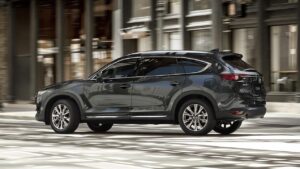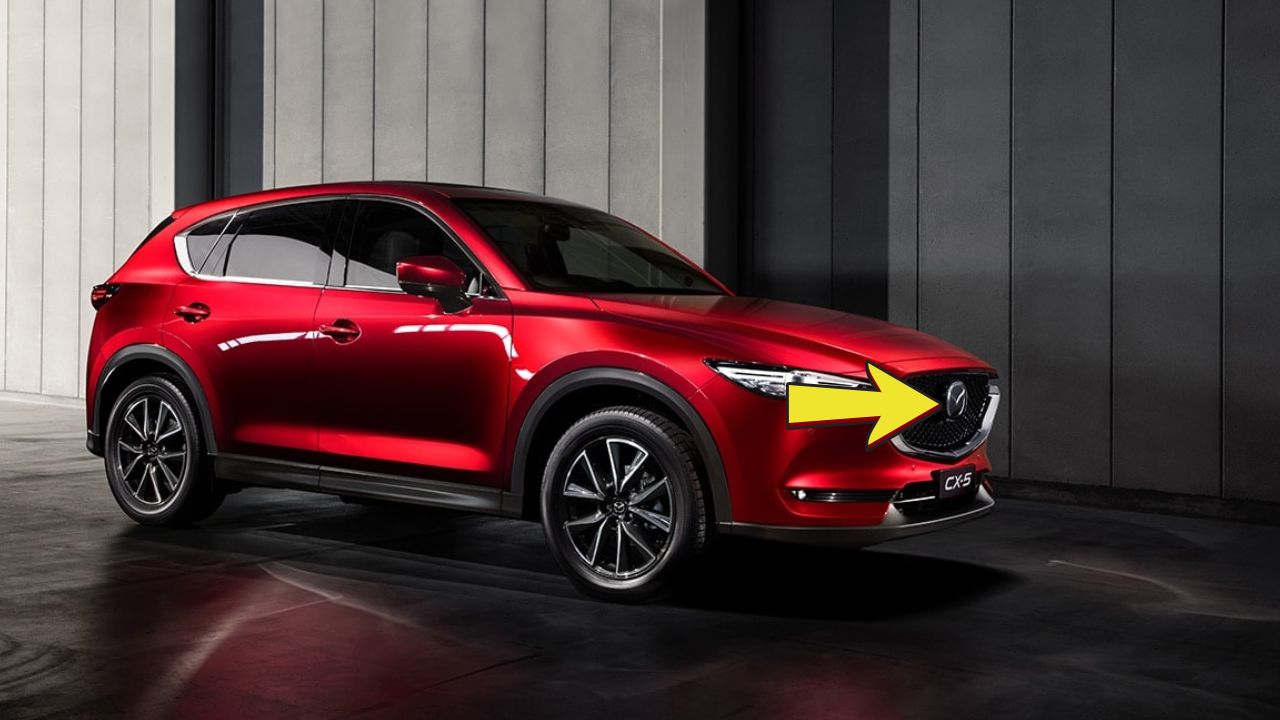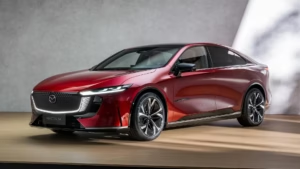Mazda has always been that friend who stays true to their principles. For decades, they’ve steered clear of fleet sales in Australia like it was some kind of automotive plague. But times change, and so do business strategies.
The Japanese automaker is now dipping its toes into fleet waters. However, they’re not jumping in headfirst like some manufacturers who treat rental lots like dumping grounds for unsold inventory.
Why Mazda Changed Their Mind About Fleet Sales
Corporate Environmental Goals Drive Demand
Companies today face intense pressure to meet environmental targets. Every business wants to show they care about the planet, and their vehicle choices reflect this commitment.
Mazda’s plug-in hybrid CX-60 has become a magnet for corporations chasing those elusive ESG goals. These companies need vehicles that look good on paper, especially when it comes to CO2 emissions.

Government Contracts Open New Doors
Getting onto government vehicle lists isn’t just about making sales. It’s about gaining credibility and opening doors to steady, predictable business relationships.
Mazda recently secured a significant deal with the Australian Defence Force for Mazda 6 sedans. This wasn’t just a transaction; it was proof that government agencies trust Mazda’s quality and reliability.
The Rental Car Revolution: Europcar Partnership
Airport Lots Tell the Story
Walk through any major Australian airport car park these days, and you’ll spot something interesting. Europcar lots are now dotted with Mazda CX-3 small SUVs, a sight that would have been impossible just a few years ago.
This partnership represents more than just business expansion. It’s Mazda testing the waters of rental sales while maintaining strict control over volume and pricing.
Strategic Model Selection
Mazda isn’t throwing their entire lineup at rental companies. They’re being selective, focusing primarily on older models like the CX-3, CX-5, and the current-generation Mazda 3.
This approach makes perfect sense from a business perspective. These vehicles have already established their market presence, and using them in rental fleets won’t cannibalize new car sales.
Protecting What Matters Most: Resale Values
Learning From Toyota’s Playbook
The Toyota Template
Mazda studied how Toyota manages fleet sales without destroying resale values. Toyota has mastered the art of fleet sales while maintaining strong second-hand market performance.
The key insight? Volume control and strategic pricing prevent market flooding. When thousands of identical vehicles hit the used car market simultaneously, values plummet faster than a lead balloon.
Setting Boundaries That Make Sense
Daniel Wakelam, Mazda’s national manager of product and business strategy, made their position crystal clear. They won’t sacrifice long-term brand value for short-term fleet volume gains.
Rental companies typically want the cheapest possible deals, but Mazda refuses to “trash the price” just to move units. If rental firms want ridiculous discounts, Mazda simply walks away.
Quality Over Quantity Philosophy
Reasonable Business Practices
Mazda’s approach to fleet sales reflects their broader business philosophy. They’d rather do reasonable business with fewer customers than compromise their brand integrity for volume.
This philosophy extends to model selection for rental fleets. If rental companies want a CX-60, they’ll get the base Pure model at full retail pricing, not some stripped-down special edition.
Market Balance Considerations
The rental car segment represents only about 5% of Australia’s total new car market in 2025. Mazda’s share of this segment is even smaller, reflecting their measured approach to fleet expansion.
This conservative strategy protects existing customers’ investments while allowing controlled growth in the fleet sector.
Corporate Sales: The PHEV Advantage
Environmental Compliance Drives Demand
ESG Targets Create Opportunities
Corporate Australia is scrambling to meet environmental, social, and governance targets. Vehicle emissions have become a key metric for companies serious about their environmental commitments.
Mazda’s CX-60 plug-in hybrid perfectly addresses these corporate needs. The low official CO2 figures look impressive on sustainability reports, even if real-world usage varies.
Paper Figures Matter Most
Corporate buyers care more about official emissions figures than real-world performance. The CX-60 PHEV delivers exactly what these customers need: impressive numbers that make their sustainability reports shine.
This trend represents a significant opportunity for Mazda’s premium models. Corporate fleets typically have higher margins than rental sales, making them more attractive business partners.
Premium Fleet Positioning
Moving Beyond Budget Options
Unlike rental companies seeking the cheapest options, corporate customers often prefer premium features and technology. This shift allows Mazda to sell higher-specification vehicles with better profit margins.
Corporate lease programs also tend to be more stable than rental partnerships. Companies typically maintain vehicles for longer periods, reducing the risk of sudden market flooding.
Government Relations: Building Official Partnerships
Navigating Bureaucratic Requirements
State-by-State Challenges
Getting approved for government vehicle lists involves navigating complex bureaucratic processes. Each state maintains separate lists, and local governments often have their own requirements.
Mazda is methodically working through these approvals, recognizing that government sales provide stable, long-term business opportunities.
Federal Success Stories
The Defence Force contract for Mazda 6 sedans demonstrates the potential of government partnerships. These deals provide volume sales without the pricing pressures typical of commercial fleet arrangements.
Government vehicles also tend to be well-maintained and properly serviced, protecting resale values better than some commercial fleet applications.
Building Strategic Relationships
Long-term Partnership Focus
Government relationships require patience and consistent quality delivery. Mazda’s reputation for reliability and low maintenance costs makes them attractive to government fleet managers.
These partnerships often extend beyond single purchases to ongoing service contracts and replacement cycles. Building these relationships takes time but provides stable business foundations.
The BT-50: Fleet Sales Success Story
Commercial Vehicle Reality
Ute Market Dynamics
The Mazda BT-50 already sells primarily to fleet customers, though many are small businesses rather than traditional large fleets. This segment has always operated differently from passenger car sales.
Small business operators choose vehicles based on practical considerations like load capacity, durability, and running costs. Brand prestige matters less than reliable performance and reasonable pricing.
Shared Platform Benefits
The BT-50’s shared platform with the Isuzu D-Max provides development cost advantages while maintaining Mazda’s design language. This partnership allows competitive pricing without compromising quality.
Fleet sales in the commercial vehicle segment rarely impact passenger car resale values, making this an ideal testing ground for Mazda’s fleet expansion strategies.
Lessons for Passenger Car Strategy
Practical Applications
The BT-50’s fleet success provides valuable insights for passenger car fleet strategies. Commercial customers value reliability, service support, and total cost of ownership over flashy features.
These lessons inform Mazda’s approach to other fleet segments, emphasizing practical benefits over marketing gimmicks.
Future Outlook: Measured Growth Strategy
Sustainable Expansion Plans
Controlled Market Entry
Mazda’s fleet expansion represents measured growth rather than aggressive market capture. They’re building capabilities while maintaining brand positioning and resale value protection.
This approach may produce slower initial growth but creates sustainable long-term business relationships. Quality partnerships matter more than quantity for Mazda’s premium positioning.
Technology Integration
Future fleet offerings will likely emphasize Mazda’s advanced safety technology and connectivity features. Corporate and government customers increasingly value these capabilities for risk management and productivity.
The company’s commitment to electrification also positions them well for future fleet requirements as emission regulations tighten across Australia.
Key Strategic Focus Areas:
- Government Contract Expansion – Securing positions on additional state and local government vehicle lists
- Corporate PHEV Sales – Leveraging environmental compliance requirements for premium model sales
- Selective Rental Partnerships – Maintaining controlled rental relationships without compromising brand values
- Dealer Support Enhancement – Building fleet sales capabilities across the dealer network
Frequently Asked Questions
Q: Will Mazda’s fleet sales hurt resale values for regular customers? A: No, Mazda is keeping fleet volumes low specifically to protect resale values for all customers.
Q: Can I buy a fleet-spec Mazda as a regular customer?
A: Fleet vehicles are typically sold through different channels, but some dealer stock may include similar specifications.
Q: Does Mazda offer special fleet pricing for small businesses? A: Small business customers should contact their local Mazda dealer to discuss available fleet programs and pricing options.

